Former Atlanta Mayor Kasim Reed, former Philadelphia Mayor Michael Nutter, and Citizen Co-founder Larry Platt talk about what it really takes to get sh*t done in cities on The Citizen’s newest podcast, How to Really Run a City. New episodes, with a special guest joining, each month. To learn more, read Platt’s article on the birth of the podcast.
![]()
LATEST EPISODE
In this episode, former Atlanta Mayor Kasim Reed and former Philly Mayor Michael Nutter, along with Citizen Co-founder Larry Platt, bring Scranton Mayor Paige Cognetti onto the show.
Cognetti is demonstrating how cities are blazing a way forward amidst the daily chaos spilling out of Washington, D.C.
“This is where local matters,” Cognetti says. “At the local level, we’re nimble, we’re able to try things that are harder at the state level, and definitely at the national level.”
“I think you’re modeling a new way,” says Platt. “You’re in that mold of the efficient governing wing of the Democratic Party.”
“This is why we have to do things like podcasts and communicate,” Reed says. “Listeners, this is your moment to do something important. Because Donald Trump and his people are not playing.”
“He’s stress-testing the entire country and what America has been for nearly 250 years,” Nutter responds.
Join us for this episode about “green shoots of encouragement” coming right from Scranton, PA. Remember to subscribe to the podcast to keep up on all the latest episodes. You can even watch the conversation play out on YouTube.
As cities go, so goes the nation!
How to Really Run A City is powered by Accelerator for America, a nonprofit, nonpartisan “Do tank” that delivers solutions, connections, and resources to mayors and other local leaders working to create greater economic mobility in underserved communities.
![]()
![]()
ALL EPISODES
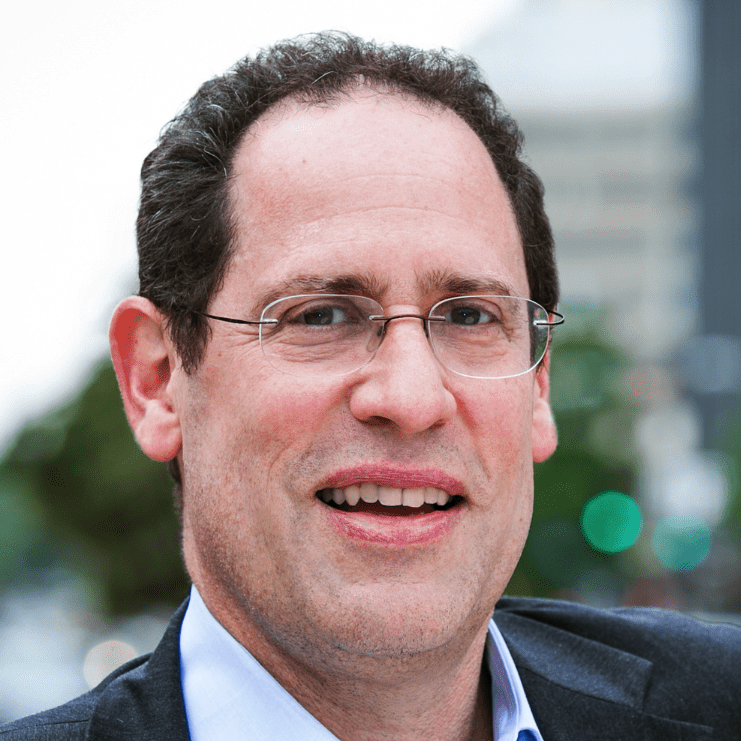
The "Elusive Wizard" of Housing
With Bruce Katz

Will Civility Save Us?
With Diane Kalen-Sukra

Cities Under Siege
With Emergency Expert Tom Henkey

Baby Qs and Barbecue
With Kansas City, MO Mayor Quinton Lucas

What the World Needs Now ...
Is a Good Laugh with the Mayors
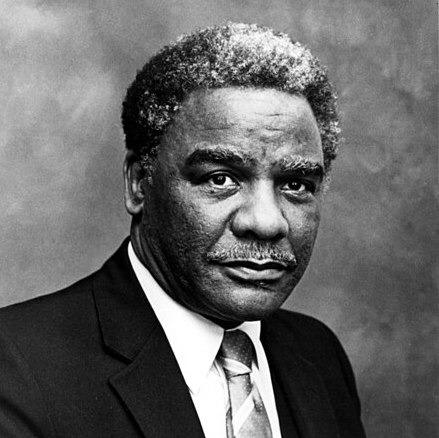
Topple the Machine, Make Fairer the City
With filmmaker Joe Winston and New Yorker writer / Macarthur “genius” Keeanga-Yamahtta Taylor

You Can't Nice Your Way to Victory
Mayors Mike Nutter and Kasim Reed
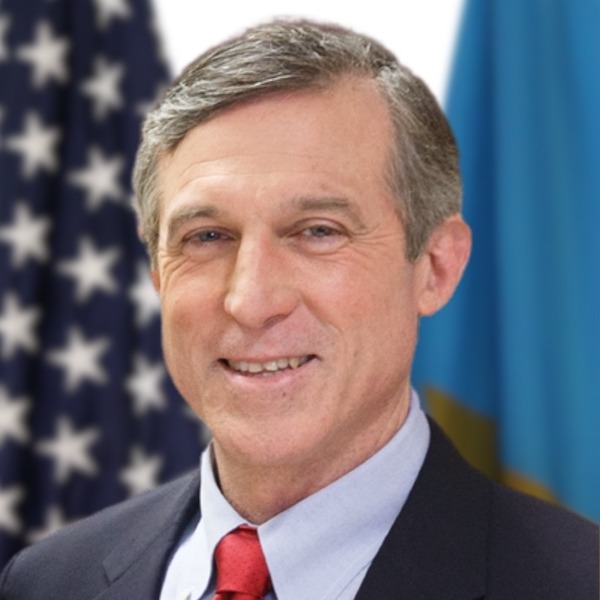
Impatience ... One Dead Tree at a Time
With John Carney, Governor of Delaware
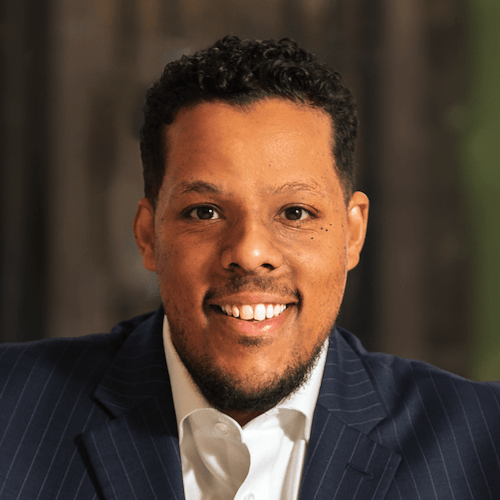
The Key to an Economy that Works is ... Workers
With Devin Cotten, founder and CEO of The Universal Basic Employment and Opportunity Initiative
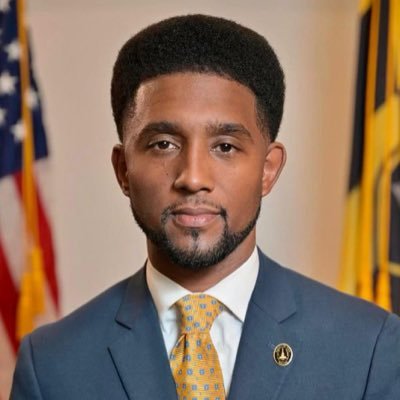
A Masterclass in Levelheaded Politics with a "DEI" Mayor
With Baltimore, MD Mayor Brandon Scott
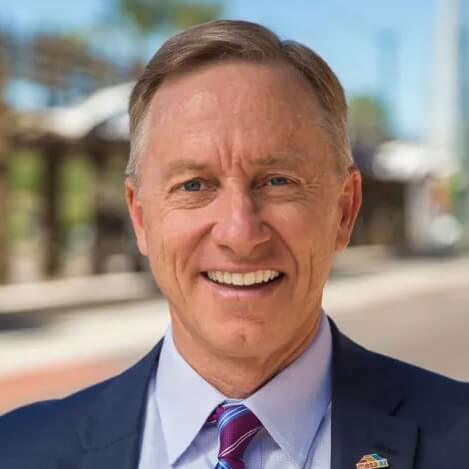
To the Americans who are "Politically Homeless"
With Mesa, AZ Mayor John Giles
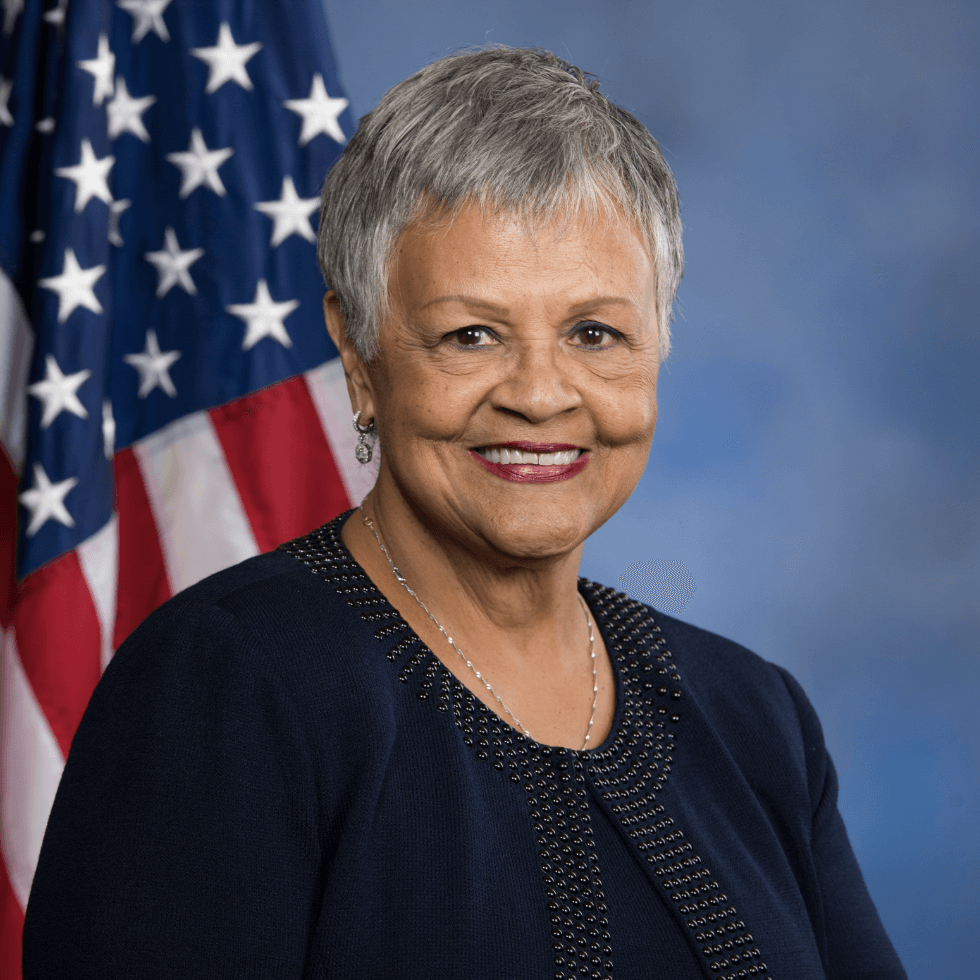
What if a Bullet Cost $5,000?
With U.S. Rep. Bonnie Watson Coleman of NJ
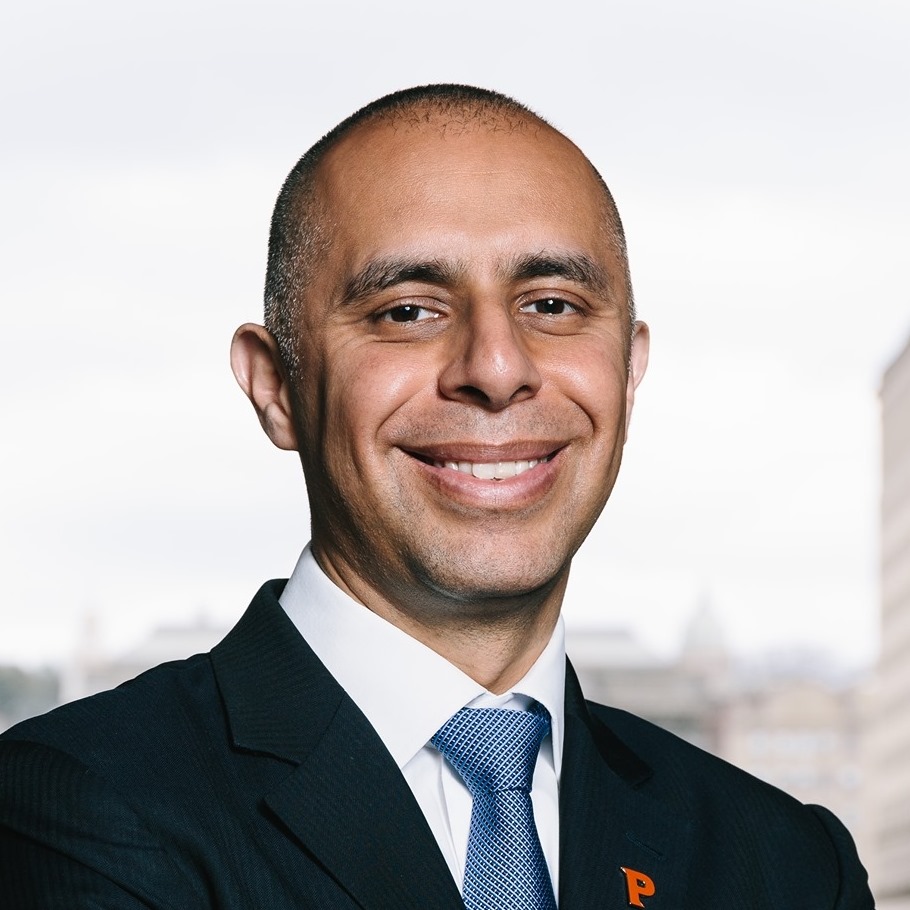
How to Innovate in Education
With former Providence, RI Mayor Jorge Elorza
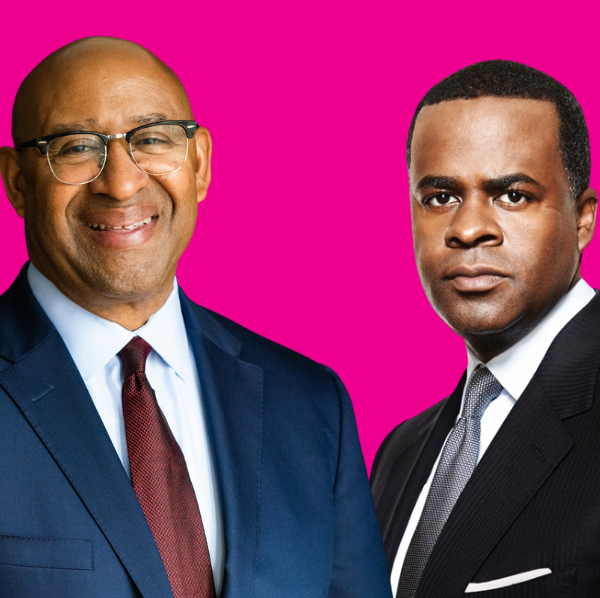
A Special Episode on Citizenship
With Michael Nutter and Kasim Reed
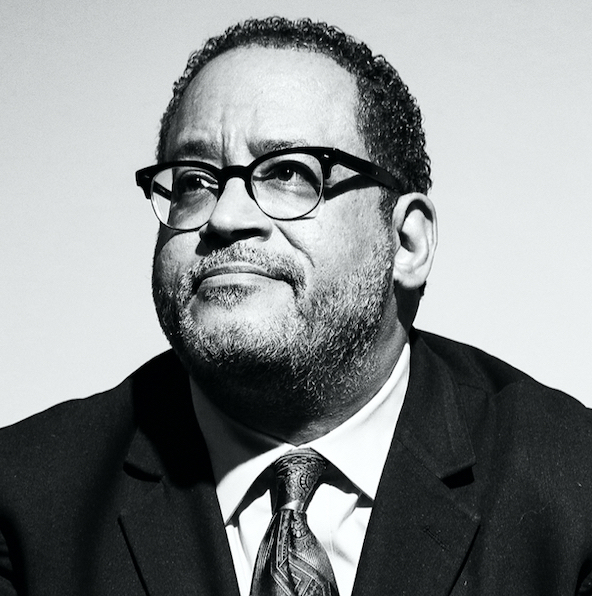
The Bobby Womack School of Good Governance
Part 2 with Dr. Michael Eric Dyson

How to Really ... Run Against Donald Trump
with Dr. Michael Eric Dyson
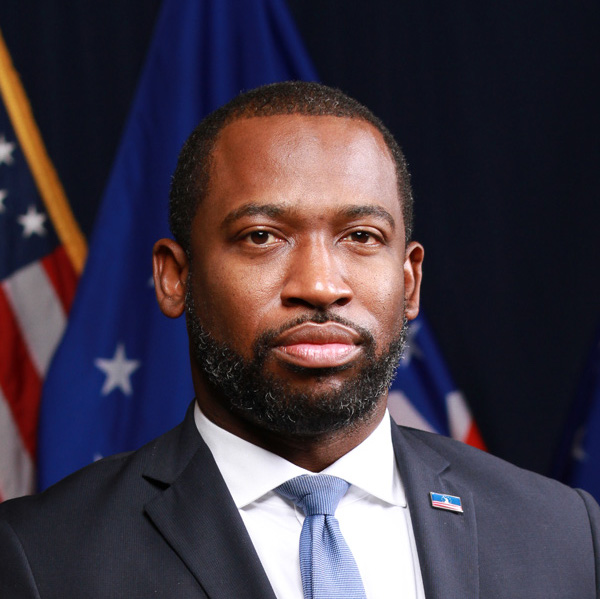
How to Really ... Manage a Public Protest
with Richmond, VA Mayor Levar Stoney
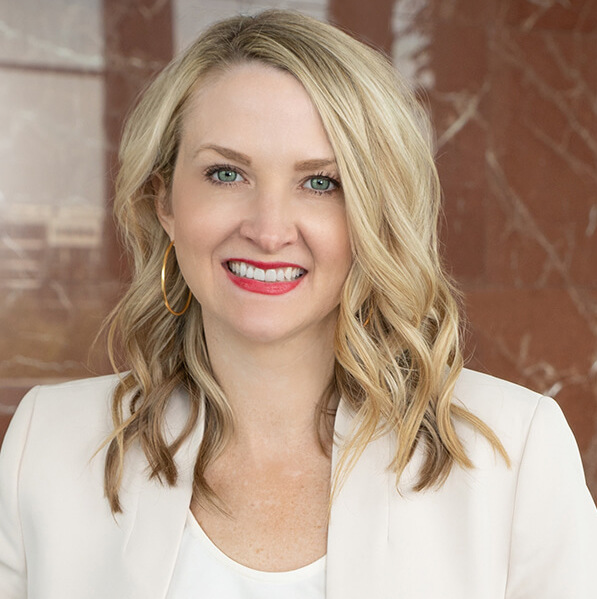
What Philly Can Learn from America's Fastest-Growing City
with Fort Worth, Texas Mayor Mattie Parker

Show Me the Money!
with Enterprise Center CEO Della Clarke (pictured below) and JP Morgan Chase's Michele Lawrence
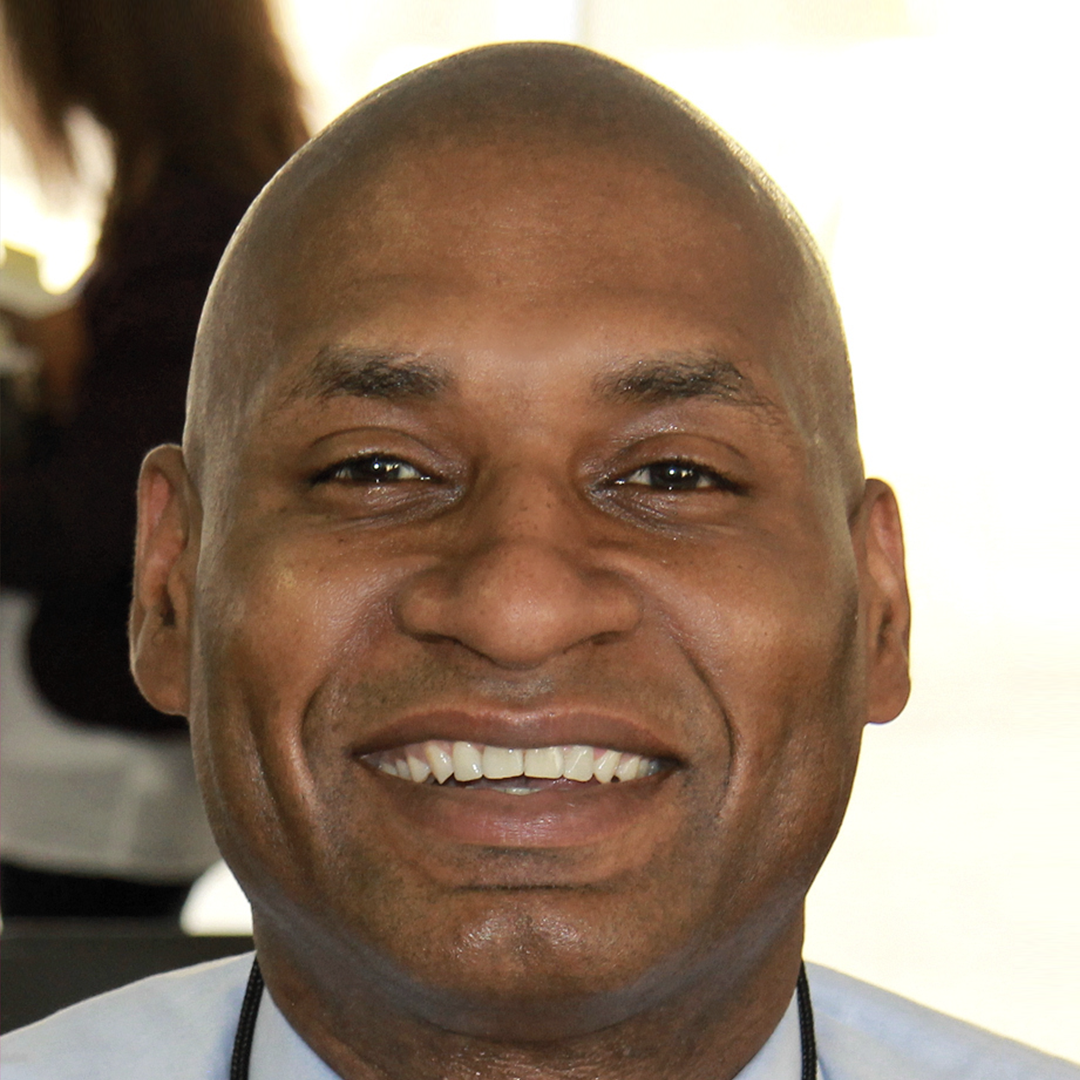
Reverse Racial Migration, Misogyny, and the Math of Democracy
with Charles Blow, columnist for The New York Times and author
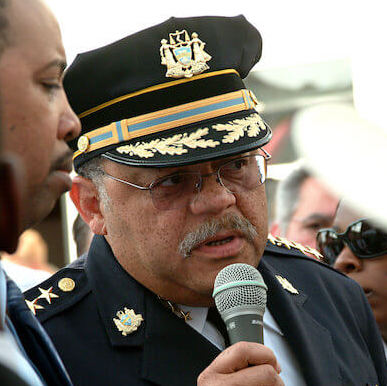
Part 3: The State — and Future — of Policing in Cities
With Charles H. Ramsey
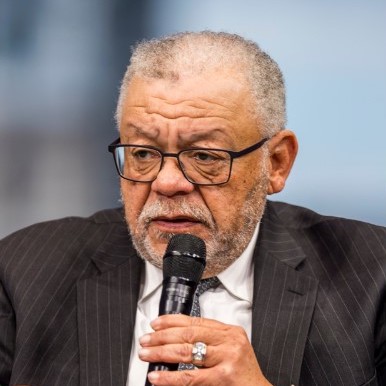
Part 2: How Tree Trimming Fights Crime
With Charles H. Ramsey, former Philadelphia Police Commissioner

2023 Year in Review
Catch up now
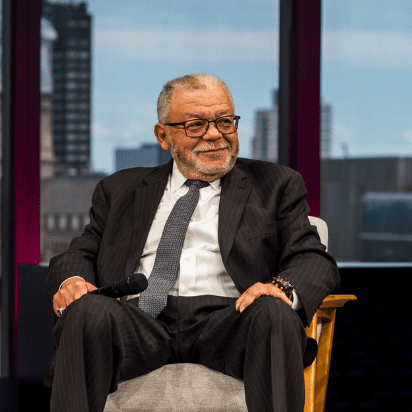
Part 1: Tuxes, Blackberries and the Key to Effective Policing
With Charles H. Ramsey, former Philadelphia Police Commissioner
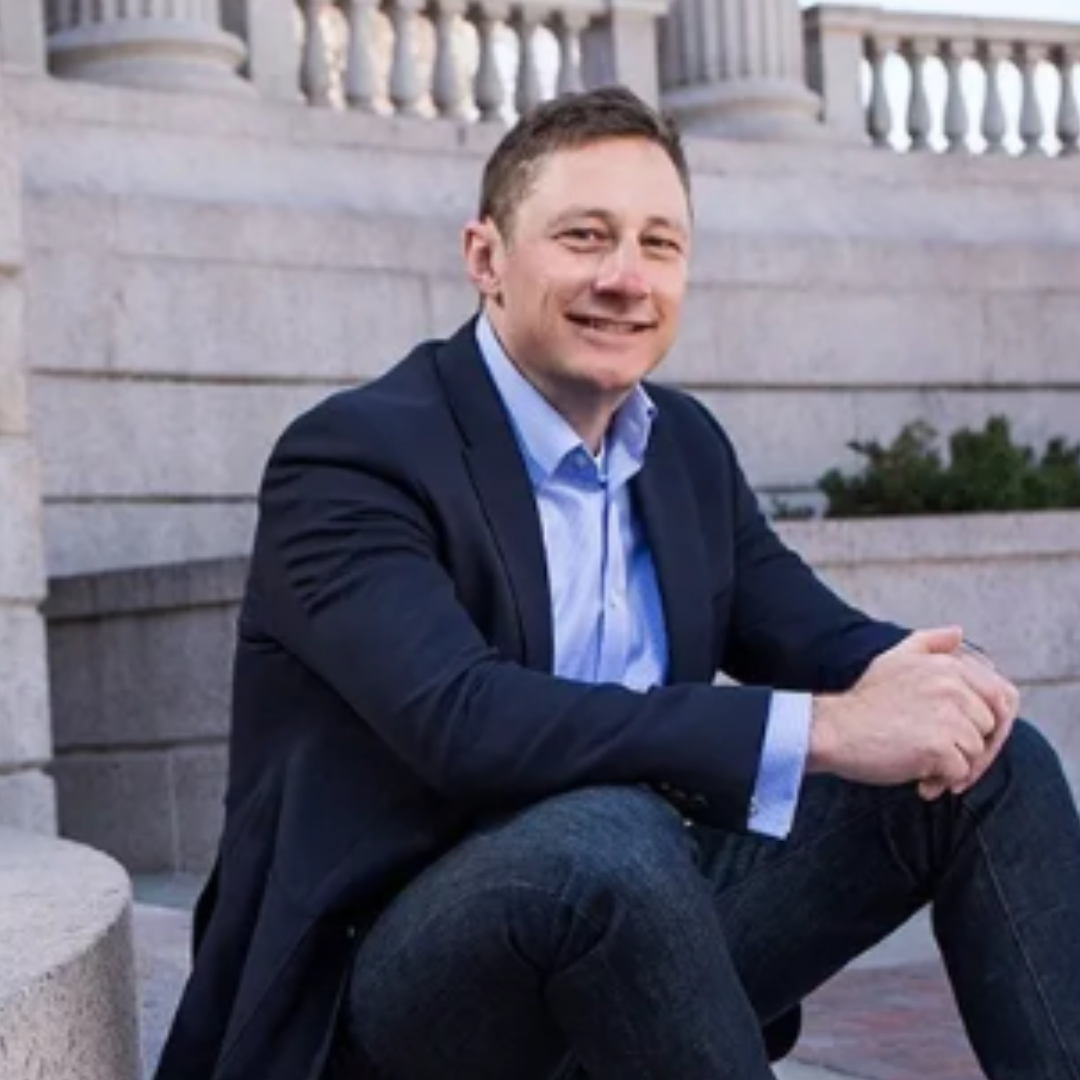
What Mayors Can Learn From...Toyota?
With Brian Elms, the CEO and Founder of Change Agents Training

Business as Unusual
with Kathryn Wylde, CEO of Partnership for New York
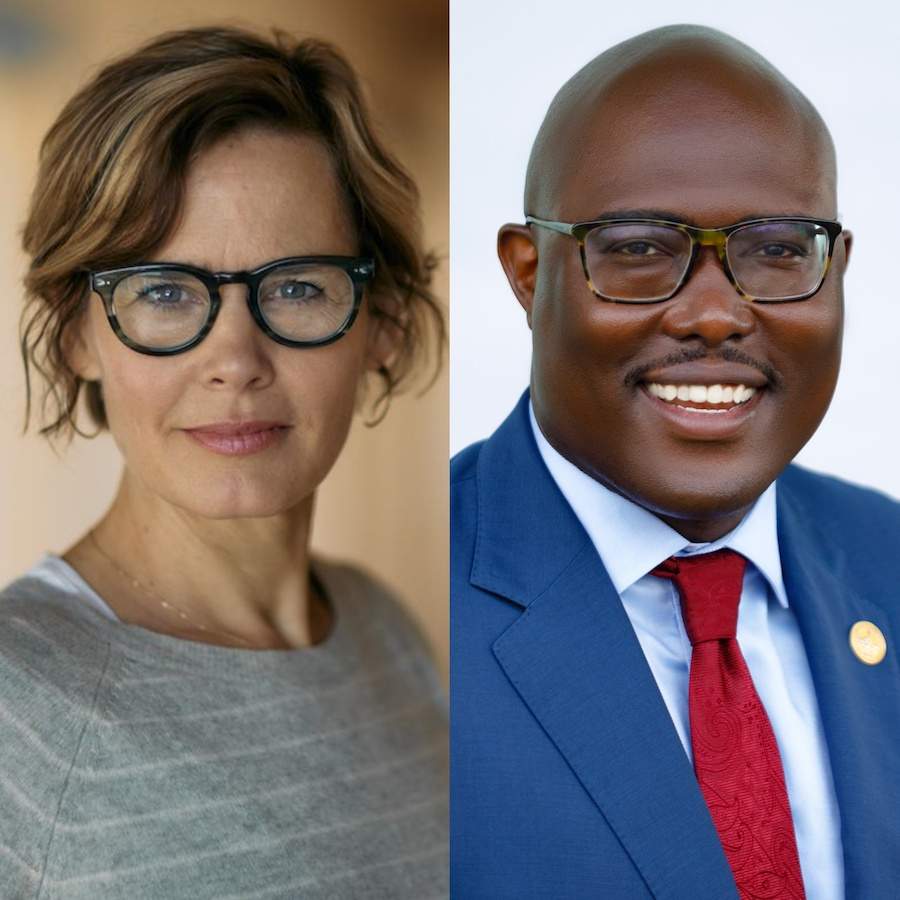
It's the Implementation, Stupid!
with Jennifer Pahlka and Little Rock Mayor Frank Scott Jr.
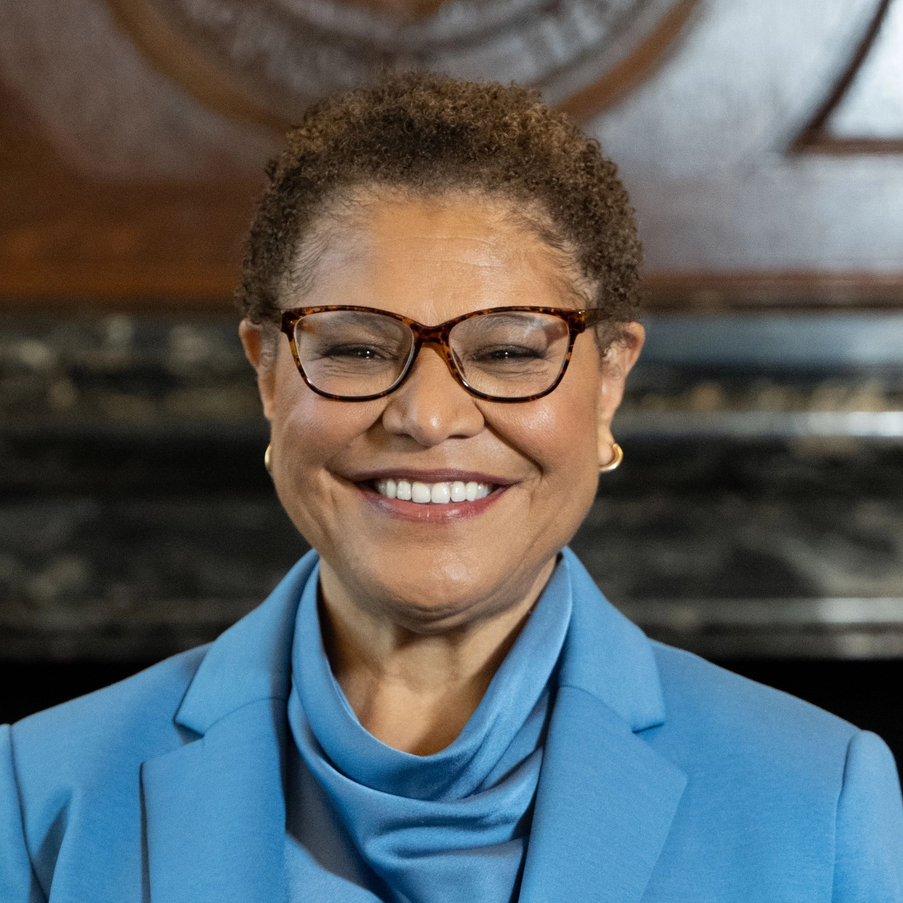
Is L.A. Modeling the Way Forward for Cities?
with L.A. Mayor Karen Bass

The Secret to Being a Good Mayor? Swagger.
with DC Mayor Muriel Bowser
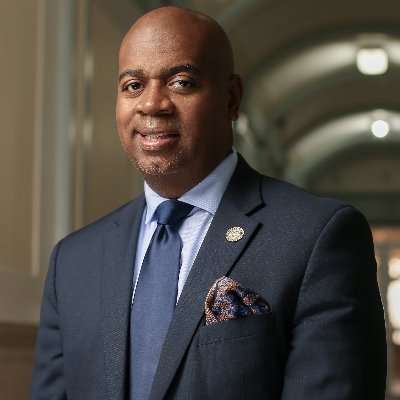
Building Black Business Density
with Newark, NJ Mayor Ras Baraka

Overcoming Partisan Politics
with Oklahoma City Mayor David Holt

Solving Gun Violence
with David Muhammad, Executive Director of the National Institute for Criminal Justice Reform

Making Cities Greener
with Phoenix Mayor Kate Gallego
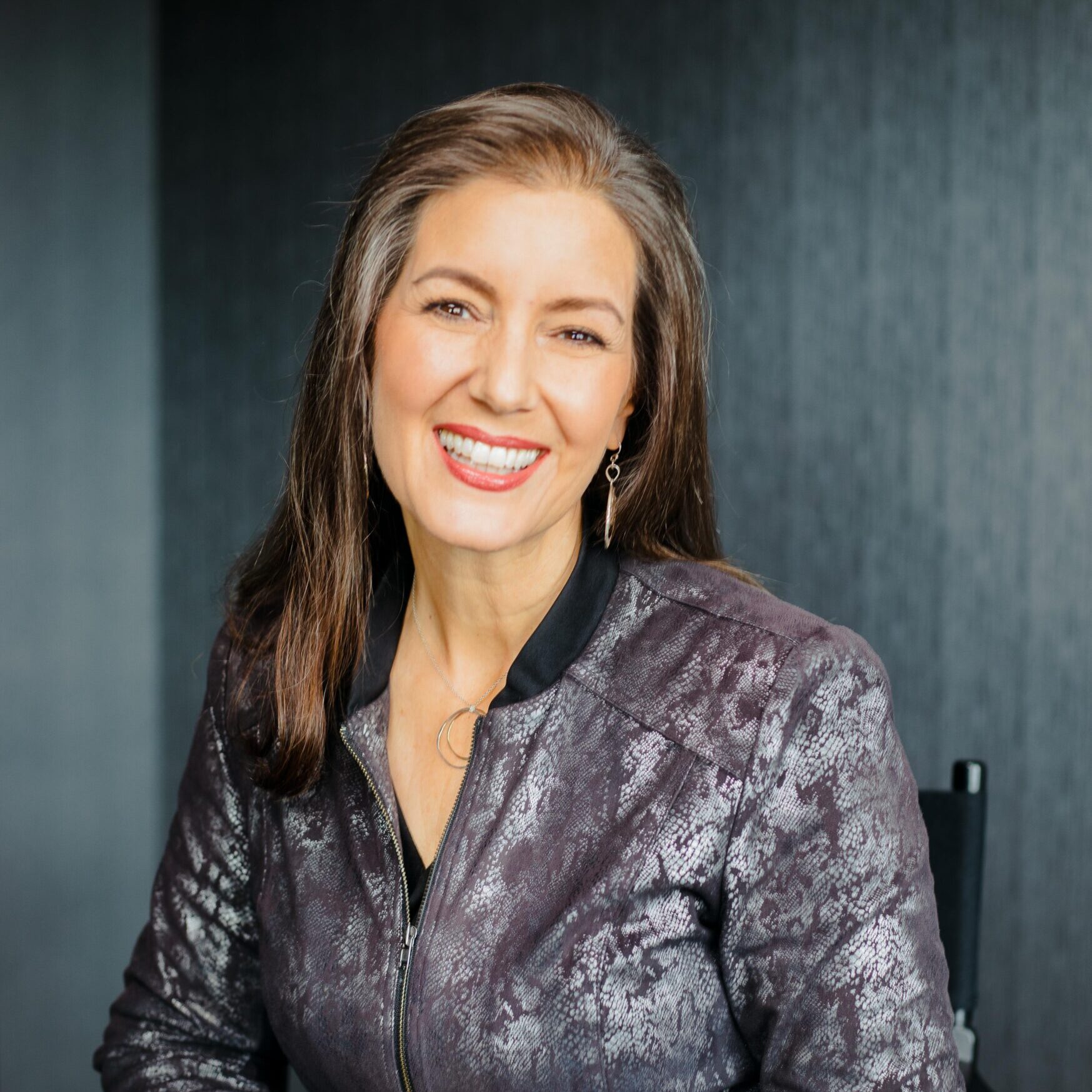
The Secret Leadership Skill You Need to Solve Problems
with Oakland Mayor Libby Schaaf
The "Elusive Wizard" of Housing
With Bruce Katz
Bruce Katz is the Founding Director of the Nowak Metro Finance Lab at Drexel University and an architect of the National Housing Crisis Task Force at Accelerator For America. He offered his remarkable, wizard-like insight on the current gutting of federal agencies and funding
“This is a war on the poor,” Katz says. “This is a war on science. This is abandoning our allies and the dismantling of the federal government. We should be very scared.”
There’s still hope though.
“The U.S. has always shown the power of the local. We are really unlike any other place in the world. We have a long tradition of volunteerism, philanthropy and corporate engagement. It’s local. People are committed to place. This will be our salvation,” says Katz.
Remember to subscribe to the podcast to keep up on all the latest episodes. You can even watch the conversation play out on YouTube.
Will Civility Save Us?
With Diane Kalen-Sukra
Years of acrimony and conflict in our national politics has trickled down to cities, where disdain for civil servants — and each other — has had a chilling effect on the work needed to get things done. So what can we do about it?
Diane Kalen-Sukra, a former city manager, current evangelist for political civility and author of Save Your City: How Toxic Culture Kills Community & What To Do About It — explains how we can bring down the temperature of our political conversations … and what happens if we don’t.
“Civility is not about being nice. It’s about having the backbone to boldly speak the truth, even in difficult situations,” Kalen-Sukra says.
Cities Under Siege
With Emergency Expert Tom Henkey
In the wake of weather-related emergencies all across the countries, not the least of which being the horrific fires that have devastated Los Angeles, Tom Henkey, formerly Chicago’s Senior Emergency Management Coordinator and currently the Director of Emergency Management for Titan Security Group, is a timely expert.
Emergencies like those above, Reed said, show why being a mayor is one of the three toughest jobs in government. “During every mayoralty, there is something unforeseen that happens.”
Baby Qs and Barbecue
With Kansas City, MO Mayor Quinton Lucas
Two guests this episode: First, Mary Ellen Wiederwohl, President and CEO of Accelerator for America, the nation’s preeminent city “do tank,” and our dynamic new partner on this podcast. Next, Kansas City, Missouri Mayor Quinton Lucas, known affectionately to Kansas Citians as “Mayor Q.” Lucas rose from experiencing homelessness to running Kansas City and he came into office with ambitious, fresh ideas.
“I think good mayors find a way to remove barriers,” Lucas told our hosts. Also, expect a little Eagles-Chiefs smack talk.
What the World Needs Now ...
Is a Good Laugh with the Mayors
On our closing podcast episode of 2024, we thought listeners could use a good laugh.
Citizen Co-founder Larry Platt takes us through the year’s funniest moments, from how former Atlanta Mayor Kasim Reed gets his gangsta lean on, to former Philly Mayor Michael Nutter’s “drugged up” call-in from his car. This year we had randy guests, mayors incognito and a dead tree in Wilmington, Delaware that just won’t be removed.
This special episode tries not to take 2024 too seriously.
Topple the Machine, Make Fairer the City
With filmmaker Joe Winston and New Yorker writer / Macarthur “genius” Keeanga-Yamahtta Taylor
Chicago’s late, legendary first African-American mayor, Harold Washington propelled his charisma and grassroots support to topple his city’s just-as legendary machine and remake its government — a story brilliantly told in Punch 9 For Harold Washington, which The Citizen screened on the opening night of the 2024 Ideas We Should Steal Festival.
How to Really Run A City hosts former Atlanta Mayor Kasim Reed and former Philly Mayor Michael Nutter, along with The Citizen’s Larry Platt, spoke with filmmaker Joe Winston and New Yorker writer / MacArthur Genius Award-winner Keeanga-Yamahtta Taylor explored what Philadelphia can take away from Washington’s political courage in a live taping of the podcast.
“Fairer is harder,” Reed told the audience, “if you want a bold, inclusive form of politics, it’s just harder … all of us have got to show up.”
Watch an extended version of the live, onstage conversation play out on YouTube.
You Can't Nice Your Way to Victory
Mayors Mike Nutter and Kasim Reed
On this special episode of How To Really Run A City, former Atlanta Mayor Kasim Reed and former Philly Mayor Michael Nutter get together just days after the 2024 election to hash out how they’re feeling and what they think turned the tide to President-elect Donald Trump. Despite a “painful, painful map” and impending federal policies that target vulnerable communities, Reed and Nutter offer a few rays of hope.
“Presidents have very little power to reach into cities,” Nutter observed.
“Make [the president] staff these efforts,” Reed agreed. “It would take four years just to staff up.”
Impatience ... One Dead Tree at a Time
With John Carney, Governor of Delaware
Delaware Governor John Carney is doing something that almost no other governor has done — turning his sights from the highest executive office in a state to the role of mayor (in this case, the mayoralty of Wilmington, DE).
Reed and Nutter offer some sage advice and everyone on the show reminisces about what it really takes to get shit done in a city. There’s a dead tree that mayoral hopeful Carney has been obsessing over that illustrates this point perfectly.
“Be impatient,” Nutter told Carney. “Everyday. Be impatient in doing good for your constituents.”
The Key to an Economy that Works is ... Workers
With Devin Cotten, founder and CEO of The Universal Basic Employment and Opportunity Initiative
In Cleveland, OH, Devin Cotten is helping extend universal basic employment to one hundred Clevelanders through a pilot that guarantees a living wage of $50,000 a year. This initiative bypasses the common criticism about universal basic income being just a financial handout.
“I think this is a more effective tool, politically,” former Atlanta Mayor Kasim Reed says on the podcast, “because you’ve got somebody getting up and going to work, just like the rest of us. It’s hard for people to hate on someone who’s doing the very best they can.”
A Masterclass in Levelheaded Politics with a "DEI" Mayor
With Baltimore, MD Mayor Brandon Scott
In March, a cargo ship lost power and smashed into Baltimore’s Francis Scott Key Bridge, thrusting Scott into the national spotlight amidst ugly insinuations that the tragedy was a result of Scott being a “D.E.I. mayor.”
Find out how he creatively shut down the criticisms, as Mayor Scott takes our hosts through the tragedy of that night and details his city’s stunning success in reversing the trend of shooting victims and fatalities. He even digs into the hilarious bet he has with the youth of his city as they try to unearth the mayor’s D.J. alias. (Hint: He ain’t worried.)
To the Americans who are "Politically Homeless"
With Mesa, AZ Mayor John Giles
Former Philadelphia Mayor Michael Nutter and former Atlanta Mayor Kasim Reed catch up with the Republican mayor whose speech supporting Kamala Harris ignited the 2024 Democratic National Convention.
Why’d he do it? To honor the ideals and memory of Senator John McCain. “There is no longer loyalty to principles,” Mayor John Giles of Mesa, AZ, told us. “It’s all loyalty to Donald Trump. It’s been heartbreaking for not just me, but millions and millions of Americans who are now politically homeless.”
What if a Bullet Cost $5,000?
With U.S. Rep. Bonnie Watson Coleman of NJ
U.S. Rep. Bonnie Watson Coleman of New Jersey never expected to find herself paired policy-wise Chris Rock, but both came up with the same solution for curbing gun violence in America: Make bullets prohibitively expensive.
Coleman joins the podcast to discuss her game-changing legislation (which she reintroduces every year to no avail) — The Stop Online Ammunition Sales Act. She also discussed the dearth of collegiality in Congress, and Mayors Nutter and Reed talk “ultimate retail politics” — and the vital role of a call time manager.
How to Innovate in Education
With former Providence, RI Mayor Jorge Elorza
Jorge Elorza, former Providence, RI mayor and current executive director for Democrats for Education Reform talks to Nutter and Reed about reclaiming the language, ideas, policy and vision around education, what voters want, who is making the needed change, and how to design an education system that is innovative, accountable and offers choice.
“We’re no longer just armed with the policy case or the moral case for reform, there’s also political self-interest,” Elorza says.
A Special Episode on Citizenship
With Michael Nutter and Kasim Reed
As hand-wringing over the state of our democracy has become a national pastime, we here at How To Really Run A City aired a special edition highlighting moments from previous episodes which demonstrate that high-minded civic virtues like tolerance and pluralism and communitarianism don’t only belong to the past.
Hear Oakland Mayor Libby Schaaf’s guide to public action — “Mayors belong to one party — the party of getting shit done” — Mayor Nutter’s stirring recounting of the Athenian Oath and Mayor Reed’s somber assessment of the importance of the upcoming election — “We all love to think about what we would have done if we’d been around with Martin or Lincoln. Well, this is it.”
Join us for a few reminders that citizenship and good governance also lie in our present and future — an antidote to Nutter’s assessment of our general mood: “The daily dose of crazy is tiring. People are worn out.”
The Bobby Womack School of Good Governance
Part 2 with Dr. Michael Eric Dyson
To bestselling author, public intellectual, Baptist preacher and Vanderbilt University professor Michael Eric Dyson, Bobby Womack’s 1981 hit “If You Think You’re Lonely Now” is a message to the progressives who’ve said they’ll sit out this election cycle — or cast a protest vote — over Joe Biden’s handling of Israel and Gaza.
In the second of our two-part conversation with Dyson, he says, “If you are upset with Joe Biden because of his distressing and problematic relationship with Israel, think about Bobby Womack: ‘If you think you’re lonely now, wait until tonight.'” In other words, the non-Biden option would be even worse for Gaza.
How to Really ... Run Against Donald Trump
with Dr. Michael Eric Dyson
According to recent polling, former President Donald Trump is projected to secure 18 percent of the African American vote in the United States — and 23 percent in Philadelphia — in part because of the support of high-profile rappers.
To bestselling author, public intellectual and “hip hop” professor Michael Eric Dyson, that is a result of a basic lack of civil understanding — “Trump didn’t write you a [Covid] check. He don’t got no money,” Dyson told former Atlanta Mayor Kasim Reed and former Philly Mayor Michael Nutter on the latest episode of How to Really Run A City — as well as misconceptions about masculine “swag.”
“They think he’s got swag. He’s got borrowed swag. It’s a shame and a trauma that they see him as legitimate. It’s an indictment of [poor messaging on] our side,” Dyson said.
How to Really ... Manage a Public Protest
with Richmond, VA Mayor Levar Stoney
Nutter and Reed join protégé Richmond Mayor Levar Stoney. The trio compares notes on the handling of public protest — “It’s a little more art than science,” says Reed — and dive into Richmond’s record economic growth under Stoney. They also discuss Stoney’s history-making removal of his city’s Confederate monuments.
What Philly Can Learn from America's Fastest-Growing City
with Fort Worth, Texas Mayor Mattie Parker
Fort Worth, Texas Mayor Mattie Parker won her second term with a whopping 70 percent of the vote. On this episode, our hosts talk with this superstar Republican mayor about managing a citywide boom while maintaining a small-town feel. What lessons can Philly learn?
Show Me the Money!
with Enterprise Center CEO Della Clarke (pictured below) and JP Morgan Chase's Michele Lawrence
After chatting about the recent State of the Union address, as well as the stakes for cities in the upcoming election, our hosts invite Della Clarke, CEO of Philadelphia’s Enterprise Center and JP Morgan Chase’s Michele Lawrence to discuss the power of investing in Black and Brown entrepreneurs. “This is what the podcast is all about,” observed Reed. It’s about getting past safety net politics and figuring out how we really grow into the future.
Reverse Racial Migration, Misogyny, and the Math of Democracy
with Charles Blow, columnist for The New York Times and author
There is a line in Spiderman, Across the Spider-Verse, when Peter Parker laments that he’s sick of hearing about the fate of the multiverse. He’s turned off by, had enough of, all the highfalutin, esoteric jabber.
The Marvel dialogue feels fitting in an election year when even folks within the same political parties can’t seem to agree. And it’s a sentiment that in some way captures the crux of the most recent episode of How to Really Run a City. Their guest is the polymath Charles Blow, columnist for The New York Times and author of the 2021 book The Devil You Know: A Black Power Manifesto and last year’s companion HBO documentary, South to Black Power.
In a wide-ranging and impassioned conversation, Blow makes the case for a type of new Black Power movement by calling for a Black migration to the South (he moved to Atlanta, GA, four years ago) and opining on the diminishing Democratic Party loyalty of Black men in America. The mayors and their guest dive deep into the risks run when politicians focus on philosophical debates over more day-to-day issues like jobs and the economy.
Check out Blow’s provocative book and documentary.
Part 3: The State — and Future — of Policing in Cities
With Charles H. Ramsey
Good policing stems from standards and standardization, a sort of codification of integrity. Good policing also comes from having, wisely using and analyzing good technology and good data. By analyzing trends, patterns and emerging trends with real-time data, you can develop strategies to get everyone working together.
Analyzing trends also enables police to call on other service providers — like mediation and social services — before situations escalate to crime. New approaches must be applied constitutionally, insists Ramsey. He also has something to say about he role of unions when it comes to strengthening police and communities.
Part 2: How Tree Trimming Fights Crime
With Charles H. Ramsey, former Philadelphia Police Commissioner
“Everyone has a role to play in public safety,” says former Philadelphia Mayor Michael Nutter. It’s not just about police and fire: It’s also about tree-trimming and keeping streets well-lit, because crime tends to happen in the dark. It’s about mental health services and schools.
“I think of it more as community safety than public safety,” says former Philadelphia (and Washington, D.C.) Police Commissioner Charles H. Ramsey.
To be effective, multi-department efforts can’t be haphazard or uncoordinated. As co-host and Citizen co-founder Larry Platt observes, that’s what’s meant by the latest governing term of art: “A whole of government approach.”
Find out what your role can be — and where the future of policing lies — in part two of this special three-part series.
2023 Year in Review
Catch up now
Missed the debut year of How to Really Run a City by Citizen co-founder Larry Platt, former Atlanta Mayor Kasim Reed, former Philadelphia Mayor Michael Nutter, and a different policy all-star each episode? No worries. We have a year in review here.
Each episode, guests — Los Angeles Mayor Karen Bass, gun violence prevention expert David Muhammad, author and tech pioneer Jennifer Pahlka, for example — unearth tangible tips leaders in all sectors can embrace if they’re serious about practical problem-solving. Also, they laugh a lot.
But don’t take our word for it: Bloomberg Cities Network, the authority on city innovation, recommended How to Really Run a City as one of just 10 city-related podcasts from around the world worth listening to.
Part 1: Tuxes, Blackberries and the Key to Effective Policing
With Charles H. Ramsey, former Philadelphia Police Commissioner
Former Philadelphia Police Commissioner Charles H. Ramsey joined us at our most recent Ideas We Should Steal Festival to share commonsense solutions to collaborating with a city leader (in his case, former Mayor Michael Nutter) to achieve a record low crime rate. Ramsey has more than 50 years of law enforcement knowledge and service. The former co-chair of President Obama’s Task Force on 21st Century Policing is now the Principal Deputy Monitor for the Federal Consent Decrees in Baltimore and Cleveland, a law enforcement analyst for CNN, and a Distinguished Policy Fellow at the University of Pennsylvania School of Law.
In this first of a two-part episode, we begin on the questions: How much of a police chief’s job is about reversing public opinion? What’s the secret to making citizens feel safe in all corners of their city? And what’s the most important trait any Mayor should look for when hiring a police chief? Also: What’s a Blackberry?
What Mayors Can Learn From...Toyota?
With Brian Elms, the CEO and Founder of Change Agents Training
Toyota, Motorola, FedEx — as different as their products may be, they share at least one secret ingredient: an investment in training their employees to become leaders, and to learn critical, creative problem-solving skills.
Why, then, doesn’t the public sector invest as deeply in supporting the evolution and advancement of its workforce?
It’s the question at the heart of this installment of How to Really Run a City, the acclaimed Citizen podcast co-hosted by former Atlanta Mayor Kasim Reed, former Philadelphia Mayor Michael Nutter, and Citizen co-founder Larry Platt. This episode welcomes Brian Elms, the CEO and Founder of Change Agents Training, which focuses on creating employee-driven innovation programs around the country.
For more about how Elms and his team transform organizations’ productivity and processes — and to get the scoop behind that time Mayor Nutter threw out the first pitch at a Phillies game in 2008 — listen to the newest episode here, then check out the episodes you may have missed.
Business as Unusual
with Kathryn Wylde, CEO of Partnership for New York
It’s fair to say that nothing big gets done in New York without Kathryn Wylde. As CEO of Partnership for New York — a nonprofit whose members are the city’s business leaders, collectively employing more than 1.5 million New Yorkers — she’s arguably the city’s most powerful civic and business force.
As New York Magazine reported, Partnership for New York is a “group that sees itself as functioning something like a permanent government, guiding city policy through the political vicissitudes of the moment and making sure New York remains welcoming to capital and investment … Its closed-door breakfasts are essential stops for the city’s political class and anyone hoping to join it.”
Wylde is adamant that the group is not a chamber of commerce, but “business working on behalf of the city.”
In this episode of How to Really Run a City, Wylde makes a compelling case for increased cross-sector collaboration, shares her optimism around the return-to-office debate, and calls on all of us to play a part in the social experiment we call cities.
It's the Implementation, Stupid!
with Jennifer Pahlka and Little Rock Mayor Frank Scott Jr.
This installment features two guests. First, there’s Jennifer Pahlka, founder of Code for America and author of Recoding America: Why Government Is Failing in the Digital Age and How We Can Do Better, which Ezra Klein touted in The New York Times as “the book I wish every policymaker would read.”
Next, there’s Little Rock, AK, Mayor Frank Scott, Jr., that city’s first African American Mayor. Now in his second term, Scott has brought some 10,000 jobs to the city, overseen an increase in population from 185,000 to 205,000, and led a 13 percent year over year reduction in violent crime.
Is L.A. Modeling the Way Forward for Cities?
with L.A. Mayor Karen Bass
Within the first six months of her term, L.A. Mayor Karen Bass has faced the Hollywood writers’ and actors’ strike and the teachers’ strike. She moved more than 14,000 unhoused Angelenos inside, relocating people from encampment tents into motels.
She’s also taken the helm of the city’s Metro system, and she pledges to make the 2028 Olympics car-free. How has she been so productive – and remained so passionate? To find out, listen to the latest episode.
The Secret to Being a Good Mayor? Swagger.
with DC Mayor Muriel Bowser
“You know about the handshake, right?” Mayor Michael Nutter says. “You gotta get up in that web. You gotta own the handshake.” Mayor Kasim Reed agrees, saying that Nutter once also taught him an ancillary move: One hand on the shoulder while the other clasps the hand.
Get insider tips, like the anatomy of the mayoral handshake, from these former two-term mayors. They also compare notes on how to lead with swagger, and on the mentors who convinced them they really could lead their respective cities.
Your hosts then welcome current third-term D.C. Mayor Muriel Bowser who shares what it takes to navigate the many obstacles to smart policy and governing in a city that is also (effectively) a county and state — and how she keeps focused on her goal of fueling economic prosperity without leaving anyone behind.
Building Black Business Density
with Newark, NJ Mayor Ras Baraka
Part 1:
Part 2:
Alarmingly, in a city that is 44 percent Black, Black-owned businesses with payroll represent less than 3 percent of the businesses in Philadelphia. This episode has our hosts sit down with Newark, NJ Mayor Ras Baraka and Nowak Metro Finance Lab’s Bruce Katz — two experts who have a litany of solutions to address one of the most pressing issues of our time: creating and supporting the success of Black businesses.
Sign up to keep up with The Philadelphia Citizen’s Black business spotlights.
Overcoming Partisan Politics
with Oklahoma City Mayor David Holt
For all of the seeming division in our country, there really are leaders who are committed to bringing people together to achieve real change. Helming that charge? Oklahoma City Mayor David Holt, an anti-Trump, tax-increasing Republican who joined this episode of the podcast. Whatever political party you ascribe to, meeting in the middle may be easier than you think.
Sign up to stay informed on balanced solutions to city problems at The Philadelphia Citizen.
Solving Gun Violence
with David Muhammad, Executive Director of the National Institute for Criminal Justice Reform
In this episode, Nutter, Reed and Platt turned to one of the architects behind Oakland’s 50 percent reduction in gun violence over seven years: David Muhammad, Executive Director of the National Institute for Criminal Justice Reform. Gun violence has taken a toll in cities across America. Muhammad’s game plan will leave you with a sense that this problem is one thing: solvable.
Making Cities Greener
with Phoenix Mayor Kate Gallego
Did you know that changing the color of roads could lower their temperature by more than 10 degrees? Or that strategically planting trees could lower air temperature by up to 40 degrees? Neither did we, until we heard this episode, featuring Phoenix Mayor Kate Gallego. Learn the ways she has made her city’s focus on sustainability pay off for its citizens.
The Secret Leadership Skill You Need to Solve Problems
with Oakland Mayor Libby Schaaf
There’s a secret leadership skill you can’t gain from a Harvard MBA or Stanford education: It’s connecting with the people. In this episode, hosts Reed, Nutter, and Platt explore the power of relationship to make positive changes, then welcome Oakland Mayor Libby Schaaf to share the replicable ways she’s made a difference in Oakland, CA, about problems ranging from gun violence to potholes.
How to Really Run a City is made in partnership with
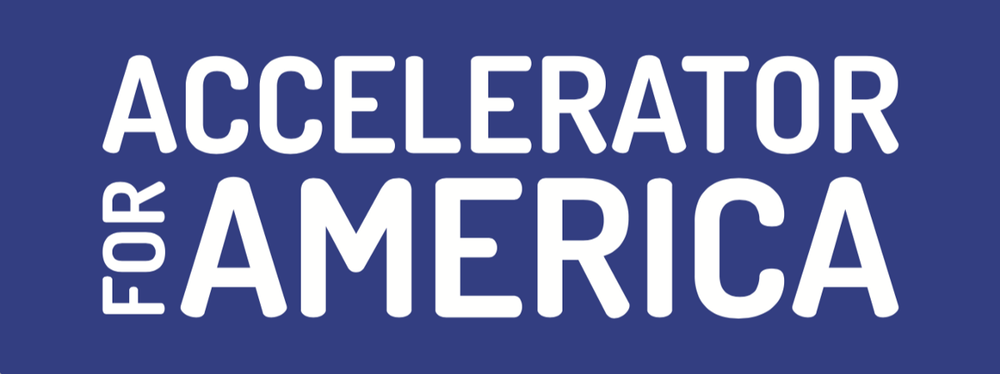


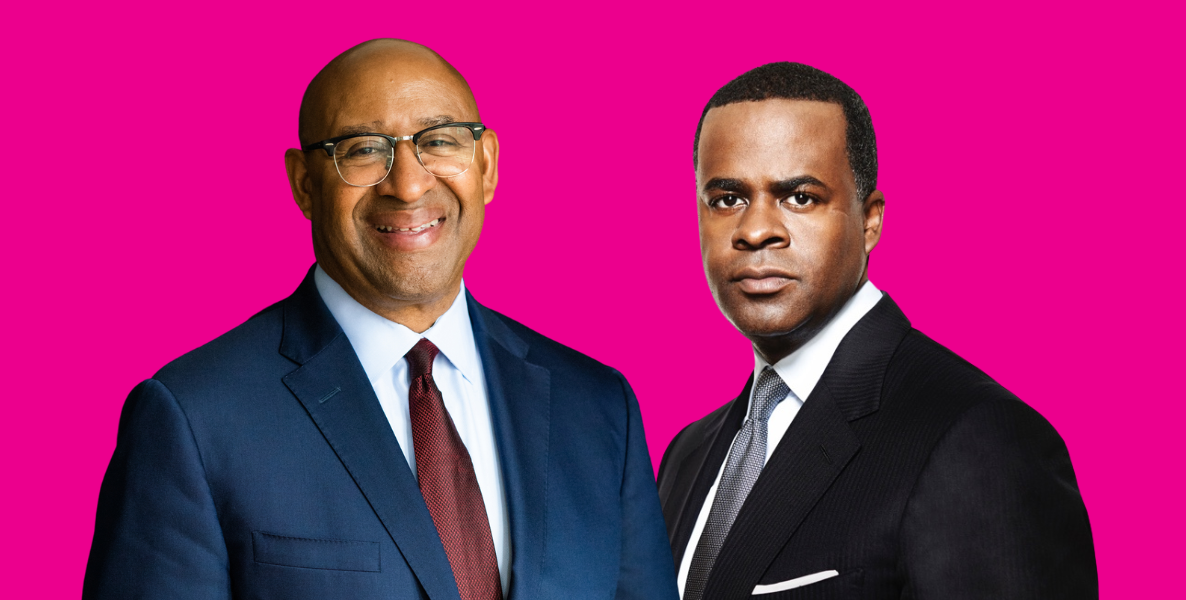
 Apple Podcasts
Apple Podcasts Spotify
Spotify Amazon Music
Amazon Music